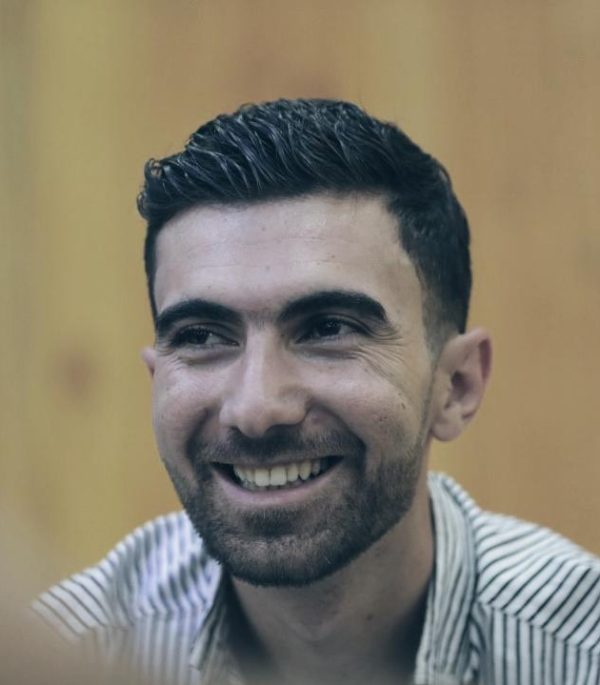
To International Silence, Turkey Decimates Northeast Syria’s Infrastructure
Turkish military escalation throughout areas of North and East Syria held by the Syrian Democratic Forces (SDF) has caused massive damage to vital infrastructure facilities that were already in dire condition after a decade of war and economic crisis.
On October 4th, Turkish Foreign Minister Hakan Fidan stated that all infrastructure in Northern Syria constituted “legitimate targets” for Turkish forces. Since then, Turkish airstrikes have targeted at least 172 sites, including oil fields, power stations and a hospital. Targeting civilians and civilian objects is a war crime under international law, as are indiscriminate attacks.
According to information collected by the North Press Agency Monitoring and Documentation Department, targeted sites as of 11:59 AM Syria time on October 9th include 26 infrastructure sites, 107 residential sites, 28 military sites, 6 agricultural lands, 3 industrial factories, a school, and a hospital.
The most prominent of these is the Suwaydiya power station, which was the only power source supplying northeast Syria’s Jazeera region with energy. The plant is currently out of service following Turkish air raids. As a result, people have been deprived of power for four consecutive days. As bombs continue to fall, reports suggest it won’t be rehabilitated soon.
Water access in the region is also dependent on power supply; therefore, locals are currently deprived of both essential needs. With a severe shortage of fuel following the destruction of many oil and gas stations, people will be left without fuel to cook and heat their homes as winter approaches.
At least one of the Turkish strikes hit close to the Washokani IDP camp, located a few hundred meters from a joint SDF-Coalition military base. The camp hosts nearly 16,000 people who were displaced from Sere Kaniye (Ras al-Ain) and surrounding areas in October 2019, when Turkey launched an unprovoked ground operation that displaced hundreds of thousands of people.
To date, there is no indication that another Turkish ground operation is imminent. However, the impact of the bombardment is massive. Many locals refer to Turkey’s drones as “killing machines”.
Turkey has justified its campaign by claiming that the perpetrators of an October 1 bombing outside of the Turkish Interior Ministry, which was claimed by the Peoples’ Defense Forces (HPG), the armed wing of the PKK, traveled through Syria. They have not provided any evidence to substantiate this claim. Syrian Kurdish leaders have refuted it, calling for Turkey’s internal conflict to be resolved peacefully and without escalation.
In reality, the scope and scale of the attacks suggest that the list of critical infrastructure targets was likely compiled well before the incident in Ankara took place—and that the ongoing air operation is part of a larger Turkish plan to target stability and security in the region by taking out vital facilities and leaving millions of Syrians desperate.
The international community, including countries claiming to seek stability in northeast Syria, has not issued any clear condemnation of these attacks. For example, France—which is considered one of the most prominent supporters of the SDF in their counter-ISIS mission and which has received political and military representatives from North and East Syria more than once—denounced Syrian regime bombardment in Idlib, but did not condemn what happening a few kilometers away from their soldiers on the ground in the northeast.
Similarly, the main partner of the SDF in the war against ISIS, the United States of America, made some timid statements expressing concern about Turkish escalation. After observing one Turkish drone target critical infrastructure for hours without reaction, U.S. forces shot it down when it came too close to the Coalition’s second-largest base. A statement posted to X, formerly known as Twitter, by the Combined Joint Task Force-Operation Inherent Resolve (CJTF-OIR), which condemned civilian harm and acknowledged the threat Turkish strikes posed to the U.S. and the SDF, was swiftly taken down.
Was this weak reaction due to Washington’s careful calculation regarding Turkey’s influence elsewhere—potentially in the context of Sweden’s NATO admission, in which developments are expected at a ministerial meeting this week? And what further messaging would this convey to its SDF partners, who are balancing among regional and international actors on the ground? Might they one day be pushed to re-evaluate their counter-ISIS partnership?
To many observers, Washington appears to have decided to oppose a Turkish ground operation while allowing air strikes, no matter how devastating, in order to balance between their NATO ally and their local counter-ISIS partner.
However, the Turkish strikes and the strategy of collapse behind them seem to directly undermine the U.S. and the Coalition’s main mandate in Syria: stabilizing and securing the region and achieving an enduring defeat of ISIS.
Turkey’s strategy of destroying essential infrastructure and eliminating leaders in security and governance has created ideal conditions for ISIS and other bad actors to thrive in Syria. ISIS cells are better able to recruit, organize and attack when SDF forces divert their attention to existential threats at the border. The unprecedented depreciation of the Syrian pound and the rising cost of living have already left millions of Syrians focused on day-to-day survival or planning to leave the country. ISIS, the Syrian regime, and Iran have been able to exploit economic instability and weaknesses in services and infrastructure to turn populations against the SDF—as the recent events in Deir Ezzor made clear. With Turkey’s strikes further paralyzing the economy and weakening AANES capabilities, these actors may intensify their activity.
On the ground in northern Syria, the impact of Ankara’s expansionist ambitions on regional and global security is well understood. Turkish president Recep Tayyip Erdogan is testing his limits. The degree to which the U.S. understands Turkey’s role in undermining the objectives of its mission in the region and puts long-term stability over short-term political wins—or vice versa—will be decisive in determining the outcome.
(Photo: North Press Agency)




